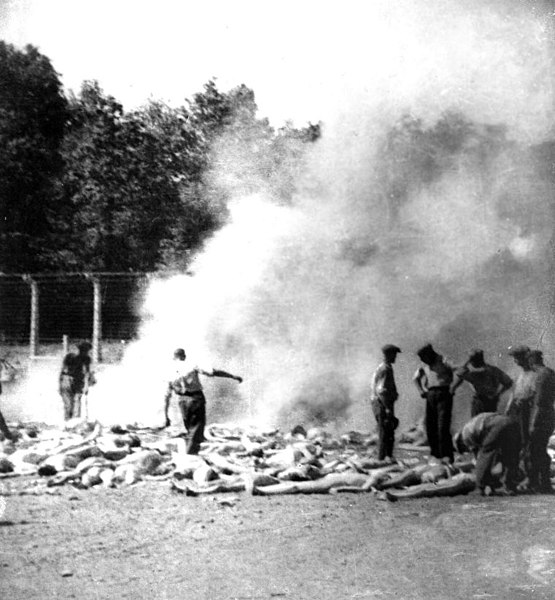Incitement to genocide is a crime under international law which prohibits inciting (encouraging) the commission of genocide. An extreme form of hate speech, incitement to genocide is an inchoate offense and is theoretically subject to prosecution even if genocide does not occur, although charges have never been brought in an international court without mass violence having occurred. "Direct and public incitement to commit genocide" was forbidden by the Genocide Convention in 1948. Incitement to genocide is often cloaked in metaphor and euphemism and may take many forms beyond direct advocacy, including dehumanization and accusation in a mirror.
Audience makes a Nazi salute during Adolf Hitler's speech of 30 January 1939, in which he threatened "the annihilation of the Jewish race in Europe!"
Jews killed during the Warsaw Ghetto uprising, described in the Stroop Report as "bandits destroyed in battle"
Streicher at the 1938 Nuremberg rally before the destruction of Hans-Sachs-Platz synagogue
Genocide is the intentional destruction of a people in whole or in part.
Raphael Lemkin coined the term genocide in 1944. His analysis of atrocities inflicted on the Poles were adopted by the UN Genocide Convention as its criteria for determining "genocidal intent"
Aftermath of the 1941 Odessa massacre, in which Jewish deportees were killed outside Brizula (now Podilsk) during the Holocaust
Members of the Sonderkommando burn corpses of Jews in pits at Auschwitz II-Birkenau, an extermination camp.
As part of the Native American genocide, the U.S. federal government promoted bison hunting for various reasons, including as a way of destroying the means of survival of Plains Indians to pressure them to remain on Indian reservations.







